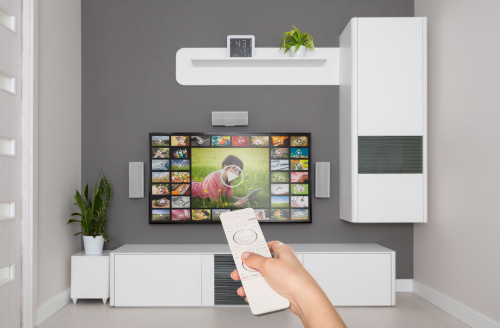With the advent of technologies such as streaming and IPTV, the world of digital entertainment has changed dramatically. Both solutions allow access to a wide variety of content over the Internet, but they differ in several aspects, particularly in how they work, their catalog, the equipment required and the cost. These differences influence the preferences of users depending on their individual needs.
How it works: Live broadcast or on-demand content
Streaming is based on a technology in which content is continuously transmitted over the Internet. Platforms such as Netflix or YouTube allow videos to be viewed immediately without having to download them first. Users can access films, series or videos at any time and on a variety of devices.
In contrast, IPTV offers a different experience. The content is transmitted via a specific internet connection in the form of live TV packages. Users can watch programs such as football matches or news broadcasts in real time. While streaming focuses on flexible and individual use, IPTV is aimed at people who prefer traditional television.
The content catalog and personalization
Streaming platforms are characterized by an extensive library of on-demand content. They offer series, films, documentaries and exclusive programs tailored to the preferences of users. Advanced algorithms enable personalized recommendations to discover new content based on individual viewing behavior. IPTV, on the other hand, focuses more on live TV and sporting events.
Subscribers have access to local and international channels. Providers such as German IPTV also integrate a video-on-demand service, with the focus still being on live broadcasts. While streaming is ideal for binge-watching fans, IPTV primarily appeals to lovers of live TV.
Compatible Devices and Setup
A big advantage of streaming is its universal compatibility. It can be used on smartphones, tablets, smart TVs, computers and game consoles. A simple internet connection and an app are all you need to watch your favorite programs.
IPTV is also compatible with various devices, but often requires specific configurations. For example, the use of an IPTV box or decoder may be necessary to fully exploit all the features offered. Some services simplify this process by providing detailed setup guides. However, less tech-savvy users may find this process complicated. In summary, streaming is aimed at people looking for a quick and intuitive solution, while IPTV requires some preparation for an optimal experience.
Costs and Legality
The cost of streaming services is usually fixed, ranging from a few euros to several dozen euros per month, depending on the platform and the options chosen. Users can easily calculate their expenses, although some exclusive content requires additional fees. IPTV, on the other hand, offers greater flexibility in pricing, with subscriptions for different budgets.
However, not all IPTV services adhere to broadcasting rights, which can lead to legal problems. Some cheap subscriptions offer illegally copied content, which could expose users to legal sanctions. It is therefore important to choose recognized and legal providers to ensure a safe experience.
In summary, both streaming and IPTV have revolutionized access to diverse content over the Internet, but they differ significantly in several aspects. Their respective characteristics, such as how they work, catalog, required equipment and cost, influence users’ choices depending on individual needs. While streaming scores primarily for its flexibility and large content library, IPTV offers a structured experience with live TV and themed program packages. Ultimately, the decision depends on whether the focus is on personalized entertainment or traditional television – both technologies have their place in the modern digital entertainment landscape.
Read Next: alltimeupdates
